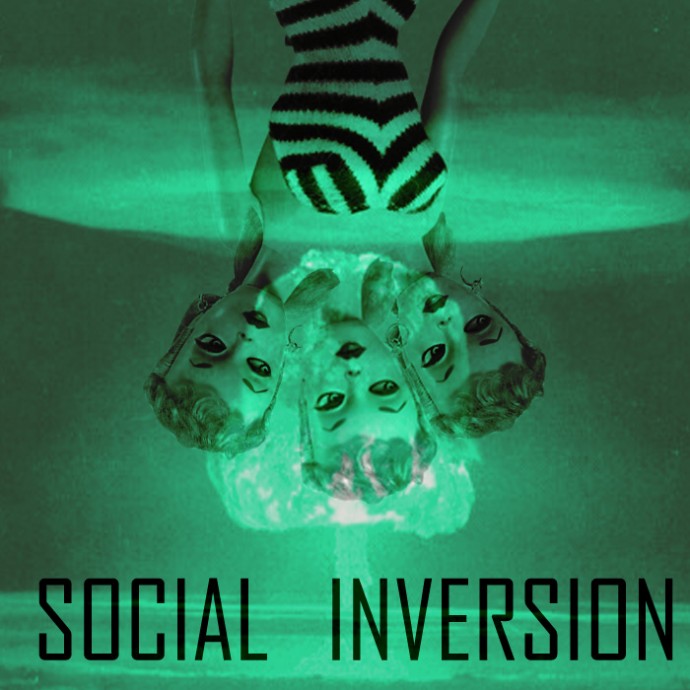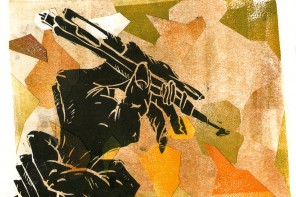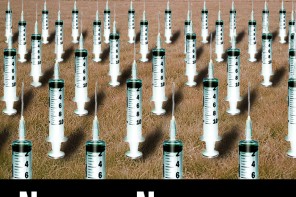This guy is convinced that we are living in a moment of diametrically inverting social trends. To convey the message, he describes the geo-physical concept of how the Earth’s geomagnetic poles suddenly revert every couple of hundred thousand years. Here is what he has to say.
In physics, I was taught about the geomagnetic reversal. It is a phenomenon which occurs on average every 450,000 years, and according to certain evolutionary theories, it may have even altered the Darwinian evolutionary processes of all life forms, due to the strong radiation the Earth is subject to in the exact moment in which this occurs. A shift is thought to last 100-1000 years, but during this period of time, the geomagnetic shield which protects us from solar winds – which are forms of radiation irradiated from the sun, and are visible in the Aurora Borealis and Australis, as the radiations are all converged towards the poles – becomes very weak. In other words, humans might be the result of Darwinian selection in combination with the random genetic mutations that occurred during these moments.
In Europe I feel that right now, we are living in a moment of inverting social poles. “Communist” China defying Western markets in the “free” market, new generations setting “hipster” trends, inspired in more sober and socially profitable niches, are replacing rebel-without-a-cause “punks” and “hip-hoppers”, the performance of the established free-trade market economy, speculation in the stock markets, and the handling of underground bank vaults, is ever more put into question. Highly specialised professional PhD graduates are often competing with generically trained go-getters for under qualified positions, Russia flirts right, the US flirts left, the Euro-zone is boiling in a dry-ice pot of nationalism and austerity. The list of self-realising paradoxes goes on, and examples of this inversion can be identified in all levels of the social scale. In this case-scenario, a few variables can be identified as indisputable catalyzers of these idiosyncratic shifts: internet, pixelated violence, the creeping fear of poverty which is constantly fed by a mix between stagnating economies, scarcer jobs, and a growing awareness of the unfair conditions under which the free trade market was conceived and nurtures off of other people, the immense efforts it would actually take to rectify it. The awareness of this last point in itself can strike to some as shocking, or terrorizing, triggering sparks of reactionary and isolationist response.
The days of good intentions and psychoanalysis in which my parents grew up in, have gotten hard-faced by psycho-correctional pharmaceuticals and good investments. As emerging economies have been dazzled by the awareness of the machine’s relentless money-making rant – the motor of today’s established middle class – the old west is seduced through playback audio and cheap airfares into the Buddhist guttural chants of peaceful coexistence and immaterialism – an eclectic mix – skeptics and optimists could argue for eternity, and even find themselves interchanging positions on the possible causes and outcomes of this alchemy. Dancing around the burning roots of ethnicity and identity, realise that I inebriate myself in an orgy of theories and concepts, many of which escape my full comprehension.
In the last years, grey areas of our collective conscience have for too long been filled with clichés over a blind trust on the growing “information highway”, the ideals of democratic societies, the unjust regimes that exist elsewhere. But crippling debts of the masses in order to acquire induced demands, and informational leaks spreading with capillary depth are starting to make us all ask ourselves, here in Europe: exactly what are we doing in the livestock farm, and are we the livestock being fed in order to be served for somebody else’s big feast banquet? Are we cannibals or is it veggie-burger meat that we are opening out of a can? It is not as though this question has never been asked before. Orwell’s “Animal Farm”, dating back to the turning point of WWII posed a similar question, as did plenty of predecessors. One could even argue that the concept of man being the “lamb of god” was already a form of voluntary social subordination necessary for progress and order during the times in which the Old Testament was written. But now that precise statistics are widely available governments are, funny as it may seem, inventing laws to conceal the origins of what we eat, or how many times it has gone up and down the continent.
Now, the risk is giving in to panic. Whether it is a momentary glare, the rising sun, or a gigantic orange crush grapefruit supernova, shuffling to quick and selfish solutions will only make us more detached. Nihilism in the past has often preceded tragic moments in history. In astronomy we have long known, as did the Mayans, that our existence is not but a sheer fortuitous combination of events. Where humans are headed, what societies are trying to achieve is a question that is far too big for me to ask myself but I sure can ask myself where am I headed, and what am I trying to achieve. And therefore, if contracting economies through their robotic speakers deny this decade and its failed resolutions, should I follow along the tango floor in contempt obedience? Asking myself could be a good start. Whether this is the interrogation of gravitational equilibriums of the universe, or the sterile poetry of a narcissistic humanoid, I leave up to you to decide.







